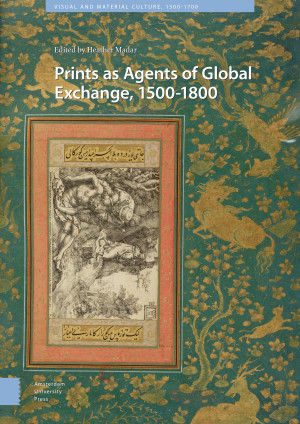The significance of the media and communications revolution occasioned by printmaking was profound. Less a part of the standard narrative of printmaking’s significance is recognition of the frequency with which the widespread dissemination of printed works also occurred beyond the borders of Europe and consideration of the impact of this broader movement of printed objects. Within a decade of the invention of the Gutenberg press, European prints began to move globally. Over the course of the fifteenth to the eighteenth centuries, numerous prints produced in Europe traveled to areas as varied as Turkey, India, Iran, Ethiopia, China, Japan and the Americas, where they were taken by missionaries, artists, travelers, merchants and diplomats. This collection of essays explores the global circulation of knowledge, both written and visual, that occurred by means of prints in the Early Modern period.

